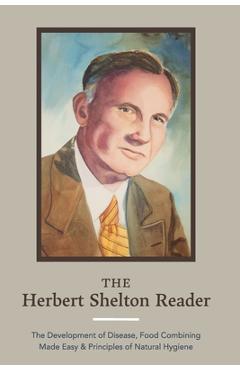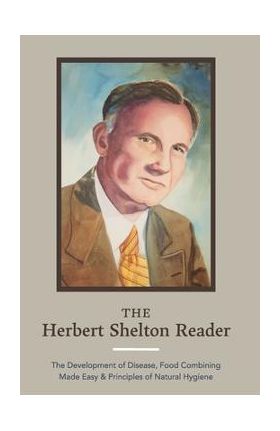Cosul este gol

The Herbert Shelton Reader: The Development of Disease, Food Combining Made Easy & Principles of Natural Hygiene - Herbert Shelton
Comparati
Codul produsului: 24817009
Conectează-te ca să te putem notifica când primești un răspuns
Herbert Shelton was, in many ways, a man ahead of his own time. Born at the close of the 20th century, Shelton was an adherent of the Hygienic movement and a tireless advocate of alternative medicine. Throughout his life he opposed mainstream medical practices; he warned that drugs were being over-prescribed and that hospitalization often made sick patients get sicker. Shelton dedicated his life to offering a different approach to health. He wrote extensively about the benefits of a plant-based diet, the natural healing properties of the body, and the importance of avoiding drugs and surgery. More than anything else, Shelton emphasized the need to become attuned to the natural processes of the body. He warned that civilized man had grown out of touch with the promptings of his own instincts, and that there was an urgent need to reconnect to the physical side of life - to eat nutritious food (raw, when possible), exercise, take in the sun, and get plenty of proper rest. Shelton warned that failing to listen to the body's natural needs could lead to serious disease. But he also believed that at almost any stage, the body could be set back on the right and healthy course. Herbert Shelton was a prolific writer, and it would be virtually impossible to read all of his works. However, Shelton tended to return again and again to a few major themes, all of which are included in this collection. Those themes include the nature of disease; diet and nutrition; fasting; and the Hygiene movement itself. In many ways, Shelton was concerned with what we might call preventive care today. Shelton believed that the doctors of his time were looking at the problem of disease backwards. He pointed out that most of the time, doctors don't diagnose a condition until it has reached a very advanced stage. In many cases, he wrote, medical men didn't diagnose the condition until after the patient's death, when an autopsy was performed. To Shelton, this was an absurd situation. As he wrote, When a pathological condition becomes manifest so that a diagnosis, right or wrong, may be made, this is not its beginning. Indeed, its beginning may be, and often is years prior to this. Its development is invariably slow, gradual, insidious, causing little to no disturbance to the body and no visible sign of its presence. A body treated well - treated hygienically - will preserve its own health, Shelton argued. That's the kernel of his beliefs, and it's also the reason that h


